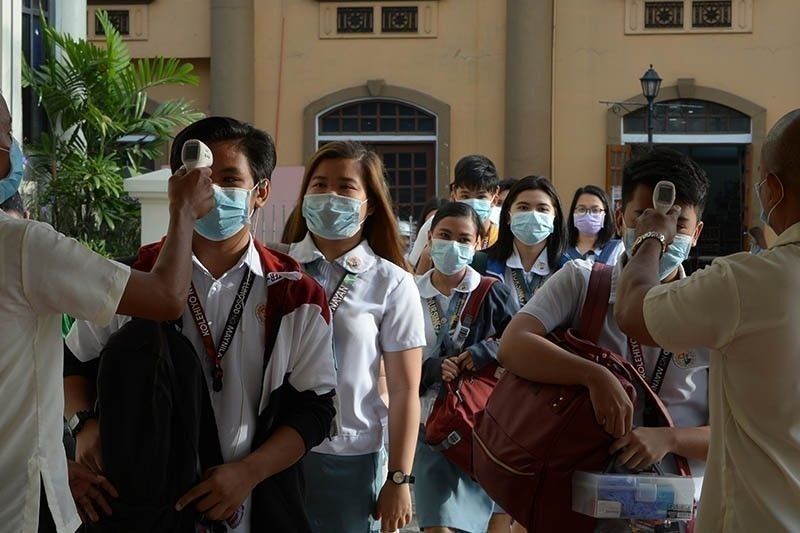Commentary: A tax policy that rubs salt on wounded education ecosystem

In a statement released recently by the Coordinating Council of Private Educational Associations (COCOPEA), its member private school members unequivocally called for the immediate rectification of Revenue Regulation 5-2021 (RR 5-2021), a new tax regulation callously issued by the Bureau of Internal Revenue.
This tax policy, just issued on April 8, 2021, if enforced, will increase the 10% tax rate applied to private schools since 1968, to 25%. A cruel tax blow of 150%! This is highly questionable especially in the face of the economic slump under the current pandemic which has already affected the closure of approximately 900 private learning institutions.
Moreover, this policy move totally ignores and in effect counters the spirit of the Corporate Recovery and Tax incentives for Enterprises Act or CREATE Act. This law was passed just last March 26 to grant tax relief for companies in financial need, provide transparent tax provisions and further increase the competitiveness of the country. This law set a 1% tax rate for private schools for three years to help them survive this deep economic recession.
So why do we have this BIR Revenue Regulation 5-2021?
It needs to be underscored that private schools have been diligent, innovative and agile partners of government in making education more accessible to Filipinos. How so? Private schools in the country cover many of those areas where government is not able to provide institutions of learning for educational service delivery.
Today, private schools, especially the small ones in both urban and rural areas, even in far-flung towns of the country are in a most precarious position of battling the threats brought about by the global pandemic and now this new tax hike, private sector investments in the education sector have become even more unviable.
In fact, as a case in point, even the well-known and over-a-century-old faith-based learning institution that is the College of the Holy Spirit in the very heart of the City of Manila will be closed down by the end of schoolyear 2021-2022. This case sadly demonstrates how enrollment in private schools from the basic up to the tertiary level has significantly shrunk and especially so with the onslaught of the pandemic.
Furthermore, another private school group, the Philippine Association of Colleges and Universities (PACU) in a survey conducted only this April has found out that “over 50% of their respondent member schools, which are private schools with higher education program offerings have experienced a decline in enrollment of 10 to 50 plus percent in SY 2020-21 compared to the prior schoolyear.”
This does not even count the negative impact on allied businesses such as the surrounding sari-sari stores, carinderias, small retail services and every conceivable small or medium enterprise needed to supply the needs of the school, its employees and students. A school creates a local socio-economic ecosystem.
This simply means that if a school closes, whether public or private, other businesses in the community are also negatively affected.
This is how, indeed, BIR’s RR 5–2021 puts at extreme risk the economic situation of more than four hundred thousand teachers and personnel in private learning institutions across the archipelago. It even negates the education nurturing government program called the GASTPE or government assistance to students and teachers in private education.
Even a cursory dialogue with school administrators would in fact reveal that these proprietary learning institutions, especially the smaller ones have, in fact, been on survival mode for the last several years and their situation has only been made worse by the pandemic and now, this new tax policy regime, which only rubs salt on the deep wounds that the private school system has been bearing for many years.
Our policymakers especially our financial governors or economic specialists must consider that private schools have been an alternative for low-income families who scrape the bottom to give their children access to private education.
It is high time for a better appreciation of the private school sector and their continuing and profound contribution in not only decongesting public schools but also in providing wider access to private education through various scholarships rather than send them to our typically congested, ill-equipped and understaffed public schools.
Government needs to listen to the private education sector as represented by these groups under COCOPEA, the umbrella organization of five leading private school associations with a total of over 2,500 member schools and PACU.
This is not the time to further regulate and levy higher tax on these private educational institutions. It is time to provide them with better public support via, for instance, enhanced GASTPE and UNIFAST programs and to relax or rectify the new tax regime imposed on them.
Let us not make a bad situation even worse with an ill-conceived revenue policy that will impact numerous stakeholders, many of them amongst the most vulnerable.
Ignoring the Create Law and enforcing BIR’s RR 5–2021 is like rubbing salt on the wounds of our educational system and it will harm the local socio-economic ecosystem.
CREATE was meant to create jobs and help those in need due to the pandemic. RR 5 – 2021 will instead place a heavy burden on many already struggling and put many livelihoods at risk.
In the interest of the whole nation, BIR’s RR 5–2021 must be rectified and the private school system further supported to survive through these troubled times.
Louie Montemar is an associate professor of the College of Social Sciences and Development of Polytechnic University of the Philippines; and former faculty member of the Political Science Department of De La Salle University-Manila.
- Latest
























